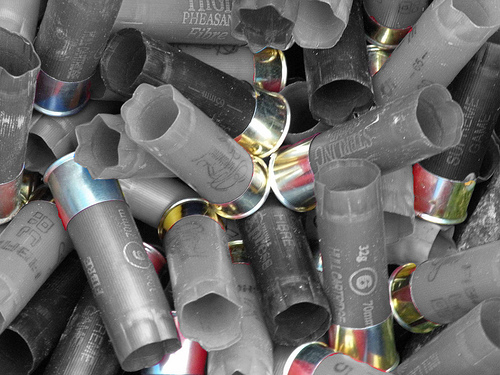An exception to Zero Tolerance?

You may have read about 17-year-old Kim Peters, a senior at Willow Canyon High School in Phoenix, Arizona. Kim started competitive skeet-shooting in her freshman year. She has won several trophies in this male-dominated sport and aspires to earn her way on to the U.S. Olympic skeet-shooting team. Kim juggles a busy schedule including twelve hours each week at the shooting range.

Photo by GCSE Jack (Flickr)
In October, 2007, Kim was running late for school and parked in a non-student area. A security guard was writing her a ticket when he saw two unopened boxes of shotgun shells in the back seat.
Kim was cited for violating the school’s ban on possessing a dangerous instrument on campus and received a four-day suspension. Kim served her time and is now asking the school to change the wording of the violation in her permanent record to reflect a less serious offense. Otherwise, her college applications could be effected.
What do you think? Should there be exceptions to zero-tolerance policies on campus for drugs and weapons? Are there gray areas that should be considered on a case-by-case basis? If so, who makes the decision – the principal, school district and/or parents?



This incident is another in a litany of “zero tolerance” extreme absolutisms. Whenever “zero tolerance” steps in front of common sense an unnecessary victimization occurs.
I understand the need for rules to maintain order and safety, but as mentioned earlier, no rule can be written to address a multitude of possible situations. This is where “leaders” (people appointed to authority positions) earn their keep, by using prudent discretion.
Bottom Line: School boards need to develop policies which establish clear guidance on general issues, but allow principals to determine an appropriate consequences for each incident. Due process is available, if deemed necessary.
Absolutely there should be exceptions. Laws are great but they can’t cover every possible situation. There needs to be case by case interpretation of the law. Slapping this girl with a suspension does not serve justice if she can show a reason for having them in her car.